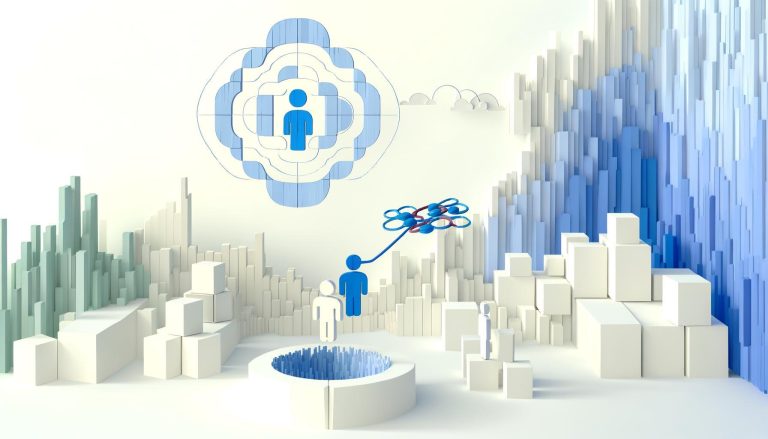Climate scientists often face a unique psychological challenge known as eco-anxiety, stemming from their close involvement with the pressing and often alarming realities of climate change. This emotional toll can affect their mental well-being, making it crucial to explore strategies and tools for fostering emotional resilience. Advances in artificial intelligence (AI) offer promising avenues to help climate scientists manage their eco-anxiety and maintain their mental health. In this article, we explore how AI tools can support climate scientists in building emotional resilience, alongside practical tips and insights on managing eco-anxiety.
Understanding Eco-Anxiety in Climate Scientists
Eco-anxiety is described as the chronic fear of environmental doom, impacting individuals who are closely involved with environmental work, such as climate scientists. These professionals are often on the frontlines, witnessing the stark and urgent realities of climate change, and the emotional weight of this knowledge can lead to significant stress and anxiety.
Causes and Symptoms
- Constant Exposure to Alarming Data: Climate scientists frequently deal with data and research that highlight the negative trajectory of environmental indicators.
- Feeling of Helplessness: Despite efforts, many scientists may feel unable to make a substantial impact, resulting in a sense of helplessness.
- Professional Pressure: Tight deadlines, the need for accurate predictions, and public scrutiny can add to their stress levels.
Common symptoms of eco-anxiety in climate scientists include difficulty concentrating, sleep disturbances, feelings of sadness or hopelessness, and physical symptoms like headaches or gastrointestinal issues.
The Role of AI in Managing Eco-Anxiety
AI tools offer innovative solutions for managing the emotional stress associated with eco-anxiety. By providing personalized support and actionable insights, AI can help climate scientists foster emotional resilience and maintain their productivity.
Mood Tracking and Analysis
AI-powered mood tracking apps can help scientists monitor their emotional states over time. By analyzing patterns in their mood data, these tools can provide insights into triggers and suggest coping strategies.
Example features might include:
- Automatic Mood Detection: Using natural language processing to analyze journal entries or verbal inputs to assess emotional states.
- Personalized Feedback: Offering tailored advice based on the user’s historical data to improve emotional well-being.
- Trend Analysis: Identifying recurring patterns or external factors influencing mood swings.
Personalized Meditation and Mindfulness Programs
AI can curate personalized meditation and mindfulness programs tailored to an individual’s specific needs and stressors. Regular practice of mindfulness can significantly reduce anxiety and improve emotional regulation.
- Guided Meditations: Offering sessions that focus on themes like relaxation, stress relief, and emotional balance.
- Progress Tracking: Monitoring the user’s improvements and adjusting the program accordingly.
- Interactive Features: Providing real-time feedback to enhance the meditation experience.
Virtual Support Communities
AI can facilitate the creation of virtual support communities where scientists can share experiences, strategies, and find solidarity. These platforms can be moderated to ensure positive and constructive interactions.
- Peer Support Networks: Connecting individuals with peers facing similar challenges.
- Expert Interventions: Incorporating trained professionals to provide additional support when needed.
- Resource Sharing: Enabling the exchange of useful resources such as articles, webinars, and coping strategies.
AI-Based Cognitive Behavioral Therapy (CBT)
AI tools can provide CBT modules designed to help individuals challenge negative thought patterns and develop more adaptive coping mechanisms. These tools are particularly effective as they can be accessed at any time, offering immediate support.
- Interactive Sessions: Guiding users through CBT exercises and practices.
- Progress Monitoring: Tracking user progress and adjusting the support provided accordingly.
- Accessibility: Offering support outside of traditional therapy hours, making it convenient for those with busy schedules.
Practical Tips for Managing Eco-Anxiety
Establish Healthy Boundaries
Setting limits on the amount of distressing environmental news and data you consume daily can mitigate the emotional impact. Allocate specific times for engaging with this information and balance it with positive, fulfilling activities.
Engage in Advocacy and Action
Actively participating in environmental advocacy can provide a sense of agency and purpose. Collaborating with like-minded individuals or groups can amplify efforts and create a more significant impact.
Foster a Supportive Environment
Surrounding yourself with supportive colleagues, friends, and family can provide emotional support. Openly discussing your feelings and experiences can lead to shared understanding and collective coping strategies.
Incorporate Self-Care Practices
Regular physical exercise, healthy eating, sufficient sleep, and relaxation techniques like yoga or deep-breathing exercises can enhance your overall well-being and resilience.
Seek Professional Help When Necessary
If eco-anxiety significantly interferes with your daily life, consider seeking professional support from a therapist or counselor. Therapists specializing in environmental stressors can provide valuable insights and coping mechanisms.
Conclusion
Navigating eco-anxiety as a climate scientist is a considerable challenge, but with the right tools and strategies, it’s possible to build emotional resilience and maintain mental health. AI offers numerous innovative solutions, from personalized mood tracking and mindfulness programs to virtual support communities and CBT modules. By leveraging these tools and implementing practical strategies, climate scientists can better manage their emotional well-being, allowing them to continue their critical work in combating climate change.
If you’re looking for tools to help track your mood and habits, set goals, and reflect on your emotional journey, consider exploring apps like Zenora, which offer features tailored to support emotional resilience. Remember, the work you do is invaluable, and taking care of your mental health is key to sustaining your efforts over the long term.





